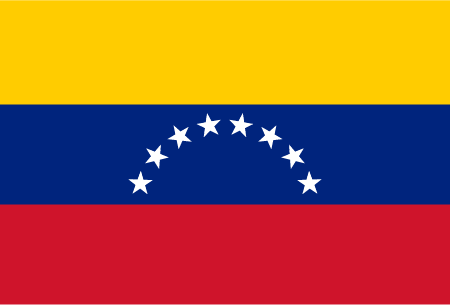
Iran: Human Rights Council must convene a special session
Fifty organisations urge the UN Human Rights Council to urgently convene a special session to address an unprecedented escalation in mass unlawful killings of protesters in Iran.
Flag of Venezuela. Source: UXWing

ISHR has joined other 9 Non-governmental Organisations (NGOs) urging the Venezuelan government to cease all forms of harassment against civil society and to ensure an enabling environment for human rights defenders.
On 17 January, ISHR joined a statement signed by other 9 international organisations expressing concern at the Venezuelan government’s continued efforts to advance the approval of the ‘Bill for the Control, Regularization, Performance and Financing of Non-Governmental and Related Organizations’ (Proyecto de Ley de Fiscalización, Regularización, Actuación y Financiamientos de las Organizaciones No Gubernamentales y Afines).
Putting CSOs and human rights defenders at risk
The bill was introduced and quickly passed by the National Assembly on 24 January 2023, even though its text contradicts international human rights norms and standards. On 9 January 2024, efforts to approve this law were resumed with the announcement by the President of the National Assembly to hold a public consultation on the content of the bill, with the objective of having a second discussion leading to its final approval.
If enacted, this law would hinder freedom of association by forcing CSOs to seek the authorization of the government to operate freely and disclose any foreign funding. The bill’s explicit emphasis on foreign funding has been pointed out as a cause for concern, as it would provide for a periodic review of such funds and financing, violating the right to privacy of NGOs and their members and guaranteeing greater control over the organisations on behalf of the government. The Washington Office on Latin America (WOLA) has indicated that even the language of the bill is worrisome, as its vague and ambiguous character rings the alarm bells of persecution against human rights defenders with possible fines, cancellation of registration of their organisation and even criminal charges.
The mere existence of such bills represents a threat and constitutes a form of control and intimidation on civil society, going against the state’s obligation to ensure democratic values and a safe environment for human rights defenders to carry out their activities. This becomes crucial as the country approaches its general elections in 2025 for the timing of this bill raises concerns about possible increases in government repression in civic spaces, situations in which NGOs have an important role in monitoring.
Venezuela must guarantee a safe and just environment for defenders and CSOs
ISHR, alongside other international organisations call on the international community to condemn the proposed law and the Venezuelan government’s continued efforts to harass CSOs, urge everyone to stand in solidarity with human rights defenders in Venezuela who face criminalisation and persecution and, finally, urge the government to cease any form of harassment against CSOs and to comply with its international human rights obligations to ensure an enabling environment for human rights defenders.

Fifty organisations urge the UN Human Rights Council to urgently convene a special session to address an unprecedented escalation in mass unlawful killings of protesters in Iran.

In a landmark ruling against Burundi, the UN Committee against Torture has set a precedent on the protection of lawyers and human rights defenders engaging with UN mechanisms, affirming that reprisals for cooperating with the UN violate the Convention Against Torture.

Are you a human rights defender working on democratic backsliding and/or racial justice, keen to use the UN to push for change at home? If so, apply for the 2026 edition of ISHR’s flagship training, the Human Rights Defender Advocacy Programme (HRDAP)!